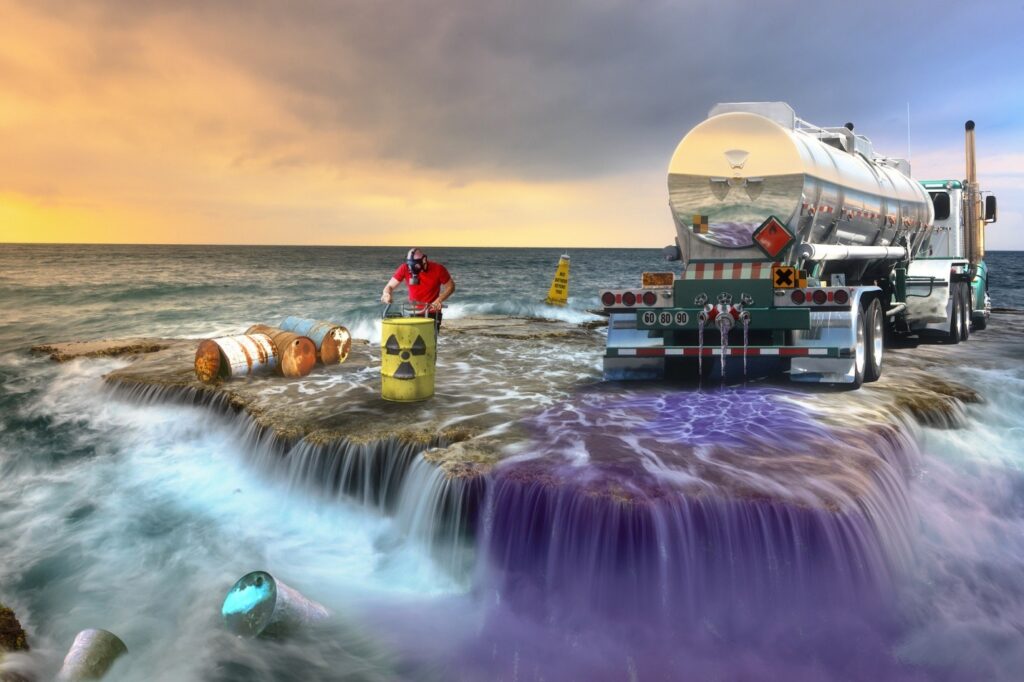Indicators on Reclaim Waste You Need To Know
Indicators on Reclaim Waste You Need To Know
Blog Article
Facts About Reclaim Waste Revealed
Table of ContentsThe Only Guide to Reclaim WasteMore About Reclaim WasteEverything about Reclaim WasteThe Of Reclaim Waste9 Easy Facts About Reclaim Waste Described
Discover the kinds, events, and forms of fluid waste. Residential sewer waste refers to the waste and products from a domestic sewage-disposal tank. This sort of waste is developed by human beings in homes, colleges, and various other structures. This only consists of septic tanks that have a drain field. The appropriate monitoring and disposal of residential sewer waste call for fluid waste to be moved to a sewer treatment plant where the proper techniques and equipment are put on cleanse and take care of waste.
Business waste often consists of potential threats, such as combustible products or a blend of liquid and solid waste products, and requires an advanced and comprehensive disposal process. The disposal of business waste commonly entails the purification of waste before transport to make sure secure and correct disposal. Hazardous waste is developed from by-products and overflow of industrial procedures and manufacturing.
This kind of waste can not use the very same sewer administration transportation or processes as septic or industrial fluids. The industrial waste administration process requires the assessment and testing of fluid waste prior to it goes through the disposal procedure (industrial wastewater treatment). Overflow waste is the liquid waste that comes from drainage and excess stormwater in very populated locations or cities
Drainage waste can cause contamination and flooding if not handled correctly. Guaranteeing correct waste management can avoid catastrophes and decrease environmental injury.
The Best Guide To Reclaim Waste
Get in touch with PROS Solutions today to learn more about our waste management and disposal solutions and the proper methods to look after the liquid waste you produce.
(https://www.storeboard.com/reclaimwaste2)Do you understand what occurs to your water when you pull the plug, purge the bathroom or drain the washing equipment? No? Well, it deserves knowing. This supposed 'wastewater' is not just a crucial resource but, after therapy, will be launched to our land, rivers or the ocean. Made use of water from commodes, showers, bathrooms, kitchen area sinks, laundries and commercial processes is called wastewater.

water used to cool down machinery or clean plant and equipment). Stormwater, a form of wastewater, is drainage that flows from farming and city areas such as roof coverings, parks, gardens, roadways, paths and rain gutters right into stormwater drains, after rainfall. Stormwater streams neglected directly to regional creeks or rivers, eventually reaching the sea.
The Greatest Guide To Reclaim Waste
In Queensland, a lot of wastewater is treated at sewage therapy plants. Wastewater is transferred from residential or industrial sites via a system of sewers and pump terminals, recognized as sewage reticulation, to a sewer therapy plant.
The Division of Natural Resources recommends regional governments regarding managing, operating and keeping sewage systems and treatment plants. In unsewered locations, neighborhood governments might need homeowners to install private or home sewer therapy systems to treat domestic read the full info here wastewater from toilets, kitchens, restrooms and laundries. The Division of Natural Resources authorizes making use of family systems when they are shown to be effective.
Most stormwater receives no therapy. In some brand-new neighborhoods, treatment of some stormwater to remove clutter, sand and crushed rock has begun utilizing gross pollutant traps. Wastewater treatment takes place in four phases: Removes strong issue. Bigger solids, such as plastics and various other things wrongly released to drains, are eliminated when wastewater is travelled through displays.
Wastewater after that streams right into huge tanks where solids clear up and are removed as sludge. Oil and residue are skimmed from the surface. Utilizes small living organisms understands as micro-organisms to damage down and eliminate remaining dissolved wastes and great particles. Micro-organisms and wastes are included in the sludge. Eliminates nitrogen and phosphorus nutrients that can cause algal flowers in our waterways and threaten water life.
Some Known Incorrect Statements About Reclaim Waste
Nutrient elimination is not readily available at all sewer therapy plants due to the fact that it needs costly specialist equipment. Clear liquid effluent generated after treatment might still contain disease-causing micro-organisms - liquid waste disposal.

This typically implies wastewater has actually to be treated or contaminants gotten rid of prior to it can be released to waterways. Most wastewater flows into the sewerage system. Under the Act, local governments administer authorizations and licences for environmentally relevant tasks (Ages) involving wastewater releases that might have a neighborhood effect. The division provides approvals and permits to ERAs including wastewater releases that might have a regional or statewide impact.
Reclaim Waste Things To Know Before You Buy
Otherwise, examples are taken for lab evaluation. Typically many tests are required to develop the degrees of each of the different toxins such as oils, heavy metals and chemicals in water. Monitoring supplies accurate details concerning water quality and can confirm that licence problems are being fulfilled. The information gotten through tracking supplies the basis for making water high quality decisions.
Report this page